#baptistine
Explore tagged Tumblr posts
Text
"Everything here is yours. What need have I to know your name?"
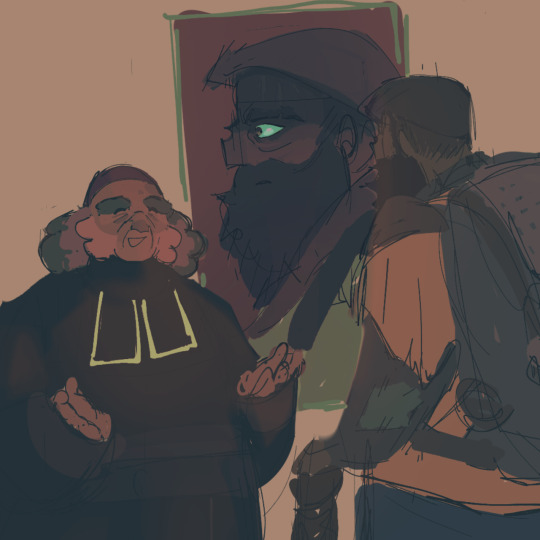
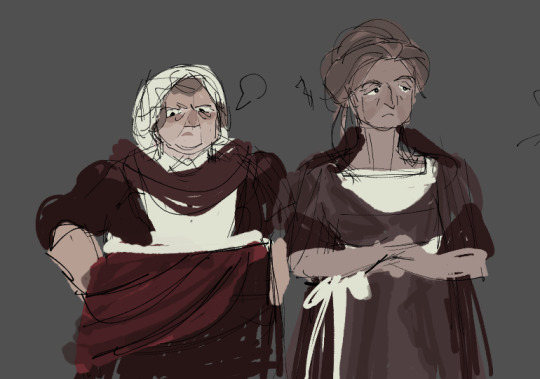
messy 2am sketches of book 1-2 since im rereading along with les mis letters ^o^
144 notes
·
View notes
Text
Jean Valjean receives a candlestick from the Bishop despite stealing his silvers, 京剧 悲惨世界 (2006)
#les mis#京剧 悲惨世界#china#chinese#jean valjean#myriel#jean valjean and myriel#baptistine#or is it magloire?
40 notes
·
View notes
Text

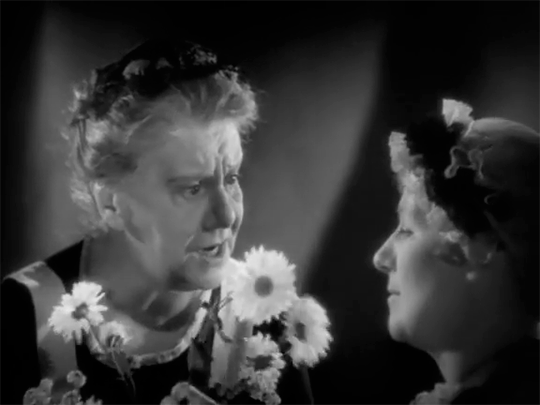

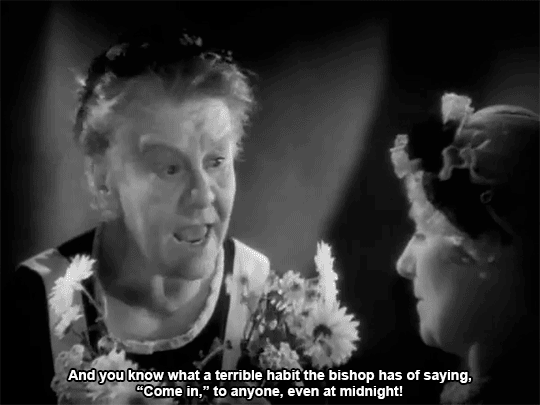

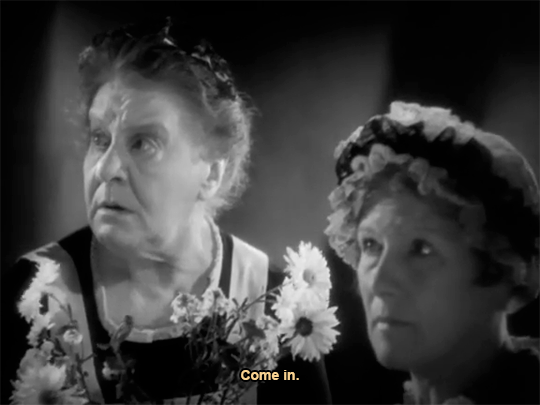
LES MIS LETTERS IN ADAPTATION - Prudence Counselled to Wisdom, LM 1.2.2 (Les Miserables 1935)
“We say that this house is not safe at all; that if Monseigneur will permit, I will go and tell Paulin Musebois, the locksmith, to come and replace the ancient locks on the doors; we have them, and it is only the work of a moment; for I say that nothing is more terrible than a door which can be opened from the outside with a latch by the first passer-by; and I say that we need bolts, Monseigneur, if only for this night; moreover, Monseigneur has the habit of always saying ‘come in’; and besides, even in the middle of the night, O mon Dieu! there is no need to ask permission.” At that moment there came a tolerably violent knock on the door. “Come in,” said the Bishop.
#Les Mis#Les Miserables#Les Mis Letters#Les Mis Letters in Adaptation#Les Mis 1935#Les Miserables 1925#Madame Magloire#Magloire#Baptistine#Baptistine Myriel#lesmisedit#lesmiserablesedit#pureanonedits#lesmiserables1935edit#lesmis1935edit#LM 1.2.2
109 notes
·
View notes
Text



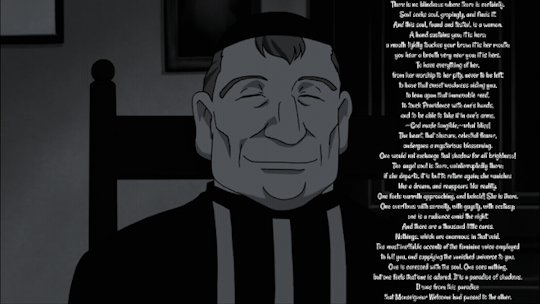
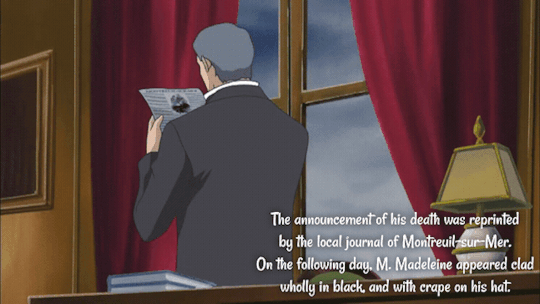
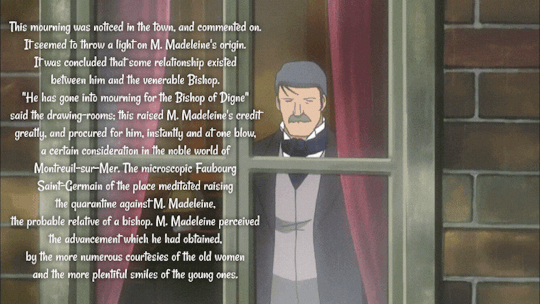
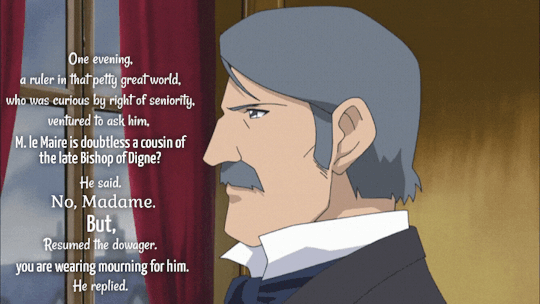

The Demise of the Bishop, and M. Madeleine in Mourning. Volume 1, Book 5, Chapter 4.
Clips from <Il cuore di Cosette>.
#Les miserables#les mis#My Post#Bishop Myriel#An Upright Man#Baptistine#Jean Valjean#M. Madeleine#The Silver Candlesticks#Rest in Peace. Bishop of Digne.#The Brick#Il cuore di Cosette#Les Mis Letters
20 notes
·
View notes
Text
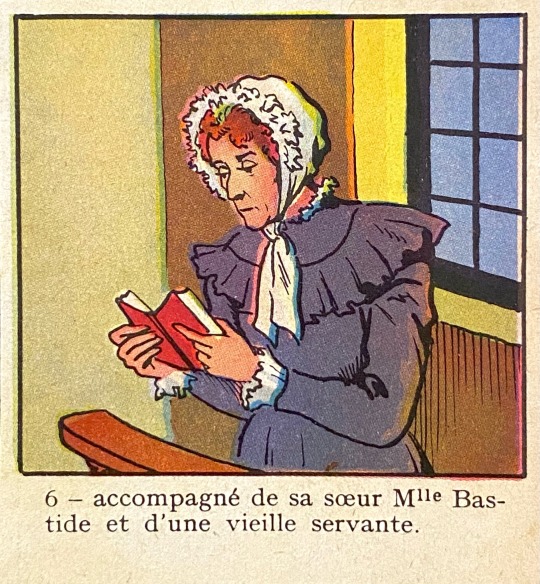


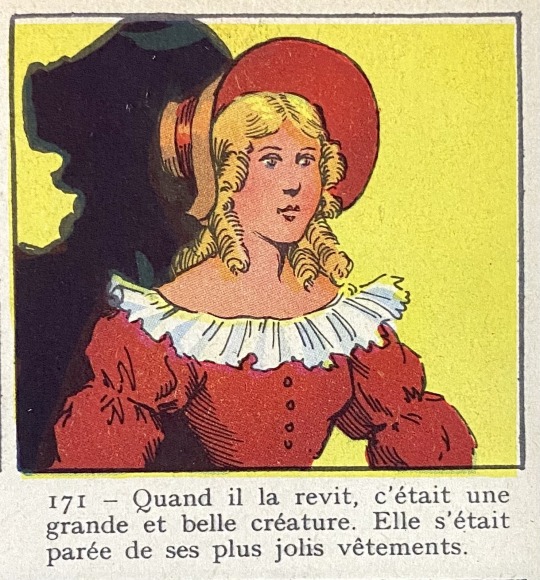
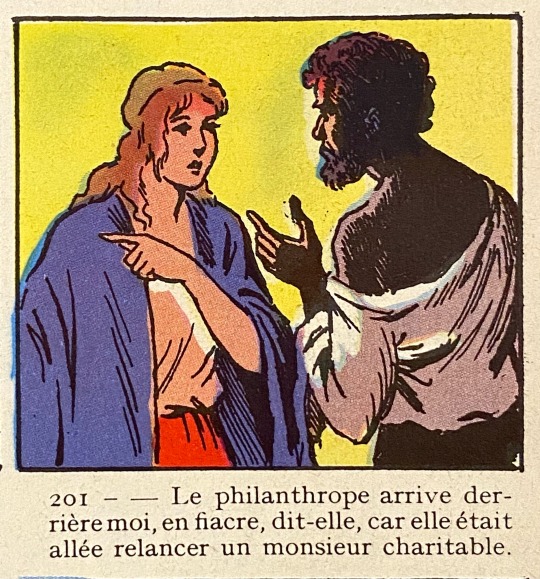

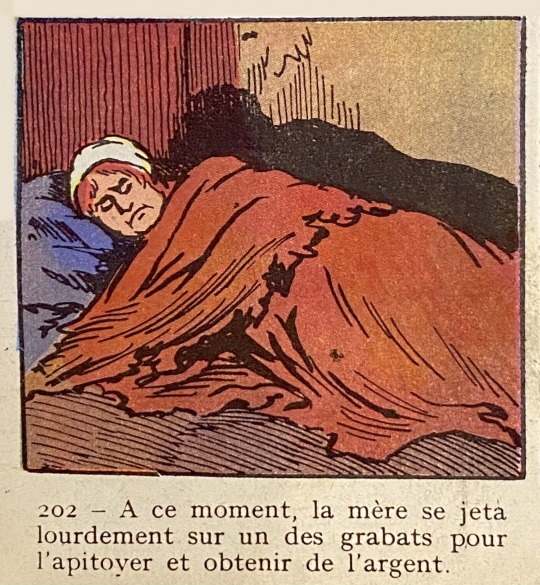
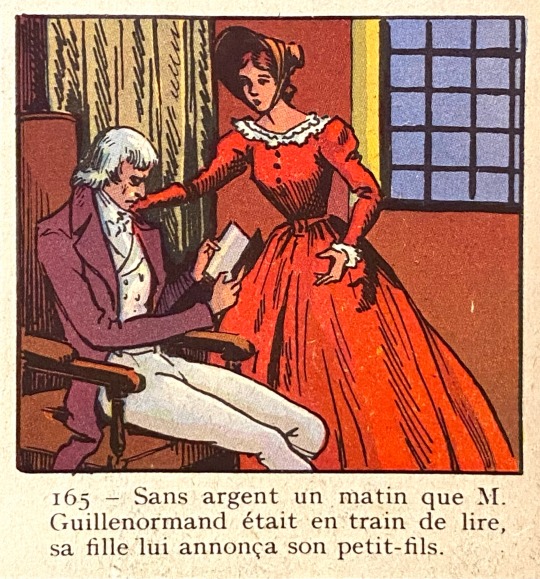
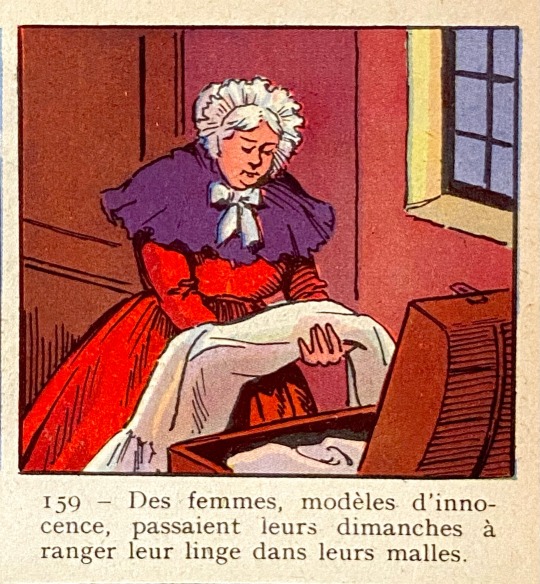
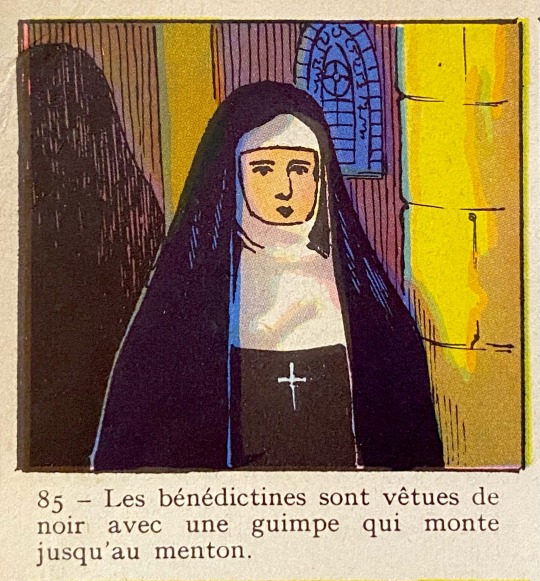
Les Misérables, French Comic by Houy Raymond (1953)
I love how the women look in this comic so much.
#les miserables#les mis#baptistine#sister simplice#fantine#cosette#eponine#azelma#madame thenardier#mlle gillenormand#Raymond comic#comics
34 notes
·
View notes
Text

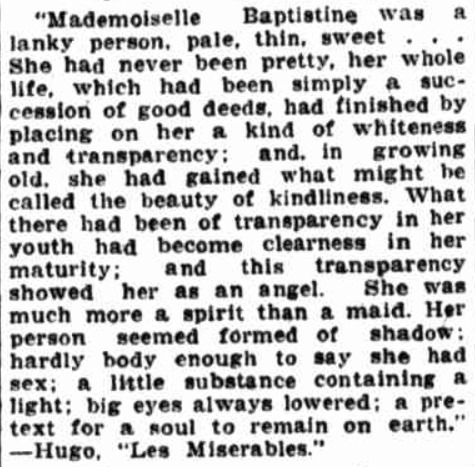
The Queensland Times, 7 July 1928
2 notes
·
View notes
Text
extremely enjoying the no-spoilers @lesmisletters discussions in which we all collectively pretend the whole brick is about Bishop Myriel.
having finished A Just Man (Bishop Myriel 1), am now looking forward to the following chapters:
2 Bishop 2 Myriel
Bishop Myriel: Digne Drift
Bishop & Myriel
Bishop 5
Bishop Myriel 6
Myriel 7
The Fate of the Bishop
B9
#mine#Les mis letters#lml#bishop Myriel#lm 1.1.14#Anne Hathaway.. she played baptistine right#what other women ARE there in victor hugos les miserables?#oh yeah. magloire. you got me there
83 notes
·
View notes
Text
hello dead gankutsuou fandom. I’ll have you know I am the number one Baptistin lover and fan and will fight to the death for him. Have a joyous day/evening/night 🔥🔥 I am so deranged about him. I refuse to believe there is another who loves him as I do.




#le comte de monte cristo#the count of monte cristo#tcomc#count of monte cristo#gankutsuou#I love baptistin so much
20 notes
·
View notes
Text

I dont know whats wrong with me, this bastard has all of eight lines in the whole show AND YET
Baptistin is everything to me, seeing this snarky bastard holding a bag of groceries made me believe in God again and i can't even tell you why... Also watch Gankutsuou its honestly so good and only 24 episodes
(for the record Bertuccio could also get it but unfortunately Baptistin had the funnier lines and that was enough to sway me)
#digital art#sketchy sketch#my art#fursona#my fursona#comic#gankutsuou#baptistin gankutsuou#my babygirl doesn't even have a tag#the count gankutsuou#small fandom problems#i swear i just have the worst luck with my preferences#baptistin#funny comic
53 notes
·
View notes
Text
I already missed a translation note by a day on day 3 of Les Mis Letters oop
I have a problem with Hapgood's translation of this line in the description of Mademoiselle Baptistine: “...large eyes forever drooping;—a mere pretext for a soul’s remaining on the earth.” In French: “...de grands yeux toujours baissés ; un prétexte pour qu’une âme reste sur la terre.”
The word "drooping" here doesn't seem quite right. I'm following along this year with the FMA translation and it does a much better job with: "...large eyes, always downcast, a pretext for a soul to remain on earth."
The phrase "des yeux baissés" as it appears in the French means "lowered/downcast eyes." I kind of understand what Hapgood means with "forever drooping" but it just sounds to me like Mlle Baptistine is always nodding off or that she has a droopy-eyed look, neither of which are right.
41 notes
·
View notes
Text
people love femslash exr but i've never found an eposette fic that gets at the specific idea of them in my head... says a lot about society
7 notes
·
View notes
Text
a lot of things just come down to this Spock's comment: I've noticed that about your people, Doctor. You find it easier to understand the death of one than the death of a million.
even Bishop Myriel
#leni reads les miserables#also unrelated but why does my translation call myriel's sister 'jane'???#i was looking through my abridged version for kids because of illustrations and got confused who this 'baptistine' person was lol
3 notes
·
View notes
Text

From the Archives: A woodblock print of Jean Valjean dining with the Bishop. The artist for this one is listed as Méaulle, Fortuné Louis, and it is dated 1879.
5 notes
·
View notes
Text
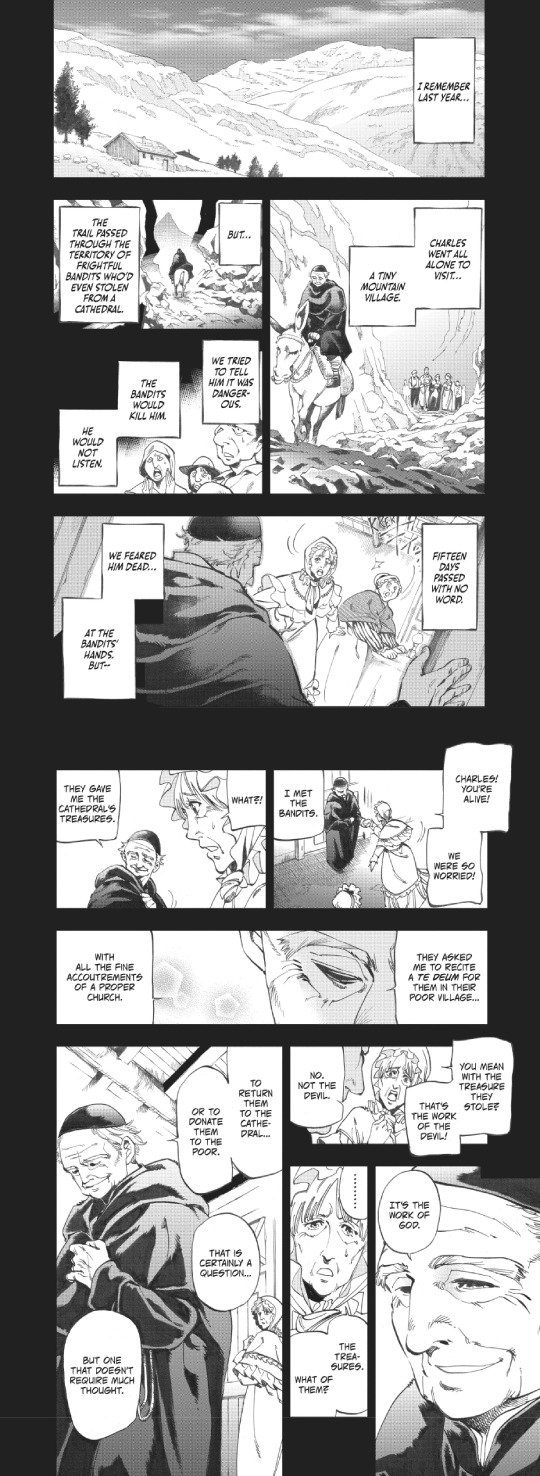
LES MIS LETTERS IN ADAPTATION - Cravatte, LM 1.1.7 (Les Miserables - Takahiro Arai)
He would take neither his sister nor Madame Magloire. He traversed the mountain on mule-back, encountered no one, and arrived safe and sound at the residence of his “good friends,” the shepherds. He remained there for a fortnight, preaching, administering the sacrament, teaching, exhorting. When the time of his departure approached, he resolved to chant a Te Deum pontifically. He mentioned it to the curé. But what was to be done? There were no episcopal ornaments. They could only place at his disposal a wretched village sacristy, with a few ancient chasubles of threadbare damask adorned with imitation lace. “Bah!” said the Bishop. “Let us announce our Te Deum from the pulpit, nevertheless, Monsieur le Curé. Things will arrange themselves.” They instituted a search in the churches of the neighborhood. All the magnificence of these humble parishes combined would not have sufficed to clothe the chorister of a cathedral properly. While they were thus embarrassed, a large chest was brought and deposited in the presbytery for the Bishop, by two unknown horsemen, who departed on the instant. The chest was opened; it contained a cope of cloth of gold, a mitre ornamented with diamonds, an archbishop’s cross, a magnificent crosier,—all the pontifical vestments which had been stolen a month previously from the treasury of Notre Dame d’Embrun. In the chest was a paper, on which these words were written, “From Cravatte to Monseigneur Bienvenu.” “Did not I say that things would come right of themselves?” said the Bishop. Then he added, with a smile, “To him who contents himself with the surplice of a curate, God sends the cope of an archbishop.” “Monseigneur,” murmured the curé, throwing back his head with a smile. “God—or the Devil.” The Bishop looked steadily at the curé, and repeated with authority, “God!” When he returned to Chastelar, the people came out to stare at him as at a curiosity, all along the road. At the priest’s house in Chastelar he rejoined Mademoiselle Baptistine and Madame Magloire, who were waiting for him, and he said to his sister: “Well! was I in the right? The poor priest went to his poor mountaineers with empty hands, and he returns from them with his hands full. I set out bearing only my faith in God; I have brought back the treasure of a cathedral.”
#Les Mis#Les Mis Letters#Les Mis Letters In Adaptation#Les Miserables#LM 1.1.7#Myriel#Bishop Myriel#M. Myriel#Baptistine Myriel#Madame Magloire#Les Mis Arai#Les Miserables Arai#lesmisedit#lesmiserablesedit#lesmisaraiedit#lesmiserablesaraiedit
21 notes
·
View notes
Text

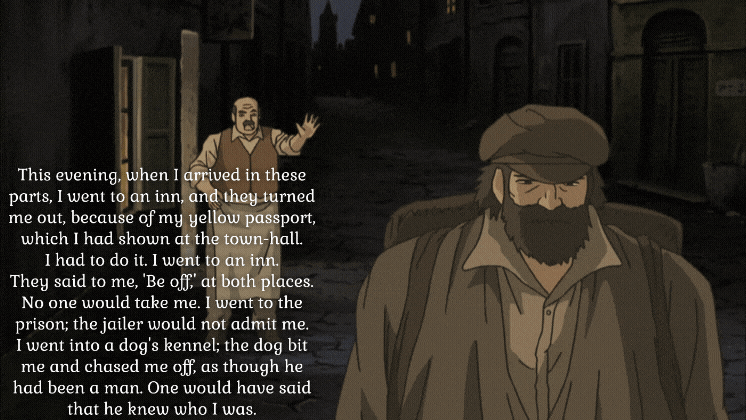

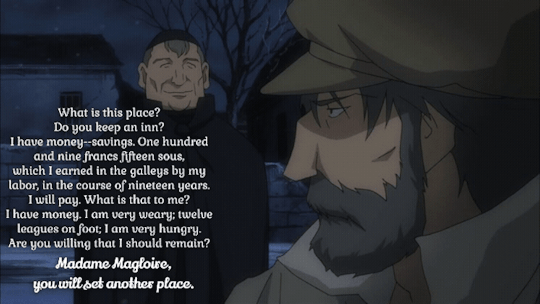
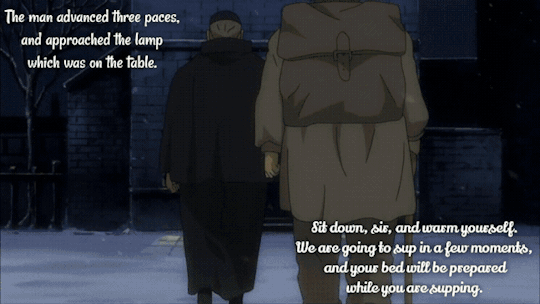
The Bishop's Invitation. Volume 1, Book 2, Chapter 3.
Clips from <Il cuore di Cosette>.
#Les miserables#les mis#My Post#Jean Valjean#On Parole#Bishop Myriel#An Upright Man#Magloire#Baptistine#The Silver Candlesticks#The Brick#Il cuore di Cosette#Les Mis Letters
36 notes
·
View notes
Link
Chapters: 1/1 Fandom: Les Misérables - All Media Types Rating: General Audiences Warnings: No Archive Warnings Apply Relationships: Magloire/Baptistine Myriel Characters: Mme. Magloire (Les Misérables), Baptistine Myriel Additional Tags: Subtle Romance, Cleaning, Moving, Comfort Summary:
When home keeps changing, sometimes all it takes to build a new one is a little elbow grease and bringing along the right people.
0 notes